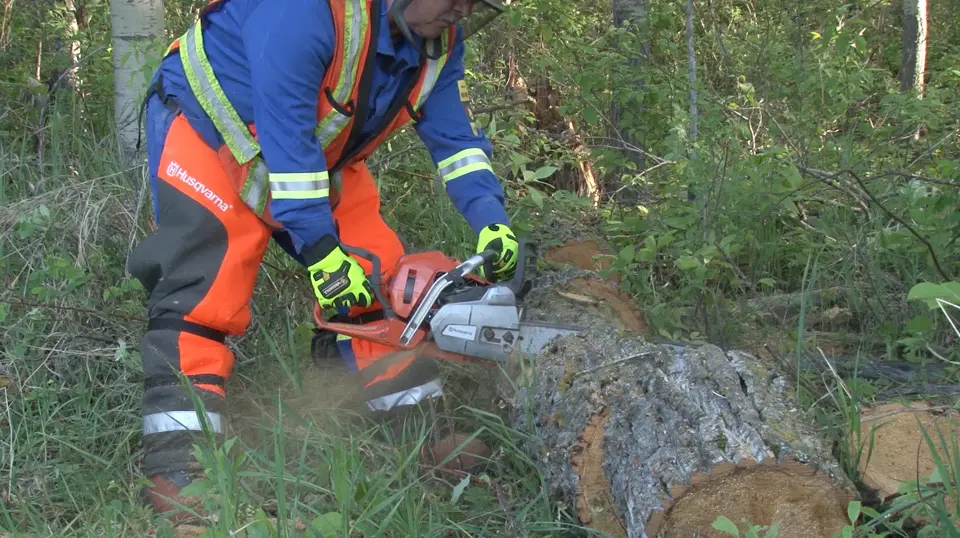Empowering Safety: Chainsaw Operator Training and Online WHMIS Training
Safety is paramount in any workplace, especially in industries where hazardous tools and substances are involved. Chainsaws, for instance, are powerful but inherently dangerous tools requiring meticulous handling and expertise. Similarly, workers exposed to chemicals or controlled products must understand how to handle them safely, as per WHMIS (Workplace Hazardous Materials Information System) standards. Investing in proper safety training ensures that employees can confidently manage risks while adhering to legal and industry standards. Chainsaw operator training is crucial for individuals in forestry, construction, and landscaping roles, emphasizing skills like maintenance, safe-cutting techniques, and emergency response. Likewise, online WHMIS training offers a flexible and accessible way for workers to understand labeling, classification, and the safe handling of hazardous materials. Together, these programs lay a foundation for workplace safety, reducing accidents, and promoting a culture of awareness.

Chainsaw Operator Training: A Practical Necessity
Chainsaw operation demands precision, knowledge, and a strong sense of safety. Improper usage can lead to severe injuries or even fatalities, making training essential. Chainsaw operator training focuses on equipping participants with the skills needed to inspect and maintain chainsaws, operate them safely, and respond effectively to emergencies. This training also includes practical components, such as learning felling techniques, understanding environmental considerations, and recognizing potential hazards in a work area. Incorporating hands-on experience ensures trainees are prepared to handle real-world scenarios with confidence. On the other hand, online WHMIS training complements these efforts by educating workers about chemical safety. Both training programs align with regulatory requirements, helping organizations meet compliance while fostering safer work environments. Together, these initiatives ensure workers are not only skilled but also equipped with the knowledge to prevent accidents.
Flexibility and Accessibility Through Online WHMIS Training
The evolution of technology has made workplace safety training more accessible than ever. Online WHMIS training has emerged as a convenient solution, especially for industries with dispersed or remote teams. This approach allows participants to learn at their own pace, ensuring they fully grasp critical concepts like hazard symbols, SDS (Safety Data Sheets), and risk mitigation strategies. With an interactive and engaging format, online WHMIS training empowers workers to retain knowledge effectively, translating into safer practices on-site. Similarly, chainsaw operator training incorporates practical instruction tailored to the trainee's experience level, ensuring safety in high-risk environments. These training programs not only enhance individual competency but also reduce workplace incidents, benefiting organizations by lowering costs related to injuries and compliance violations. The synergy between chainsaw safety and WHMIS education underscores the importance of holistic safety training in today’s workplaces.
Why Investing in Safety Training Matters
Comprehensive safety training is an investment that pays dividends in productivity, morale, and regulatory compliance. For employees, chainsaw operator training provides confidence in managing demanding tasks, while online WHMIS training ensures they can safely handle hazardous materials. Organizations benefit significantly from these programs, reducing downtime caused by accidents and reinforcing a safety-first culture. Workers trained in chainsaw operation learn to assess risks and mitigate dangers effectively, safeguarding themselves and their colleagues. Meanwhile, WHMIS certification allows employees to understand and interpret workplace labeling systems, contributing to seamless operations. Together, these programs demonstrate a commitment to worker well-being and operational excellence. The versatility of online WHMIS training and the practicality of chainsaw-specific courses highlight the value of targeted, relevant safety education.
Conclusion
In an era of heightened safety awareness, prioritizing effective training is non-negotiable. Chainsaw operator training and online WHMIS training play pivotal roles in equipping workers with the skills and knowledge needed to navigate complex workplace challenges. By offering convenience, compliance, and expertise, these programs empower organizations to uphold safety standards and protect their workforce. To explore more about safety training solutions tailored to your industry, visit onlinesafetytraining.ca. With the right tools and education, workplaces can achieve higher productivity while ensuring everyone goes home safely.
check out our site for more details.